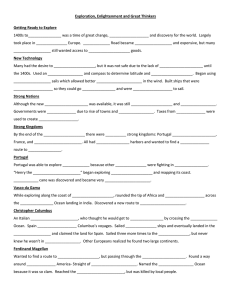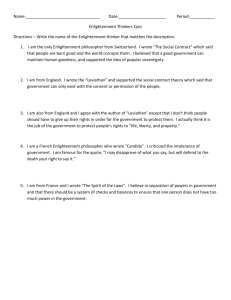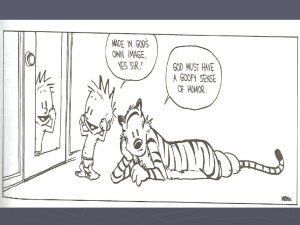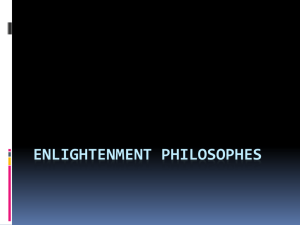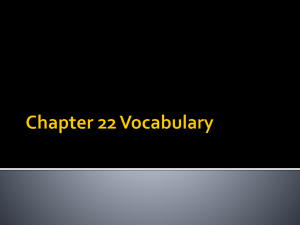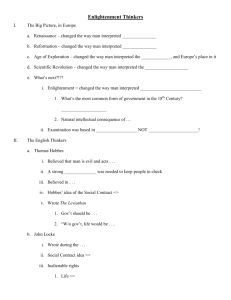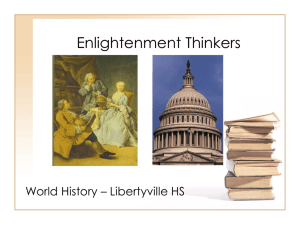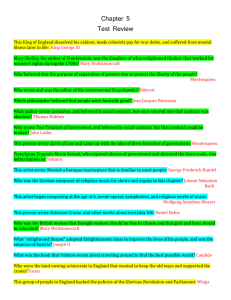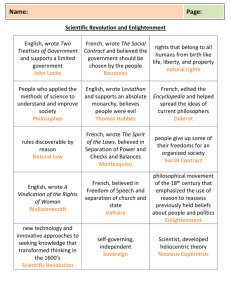Enlightenment- 17 Century Mrs. Craig th
advertisement
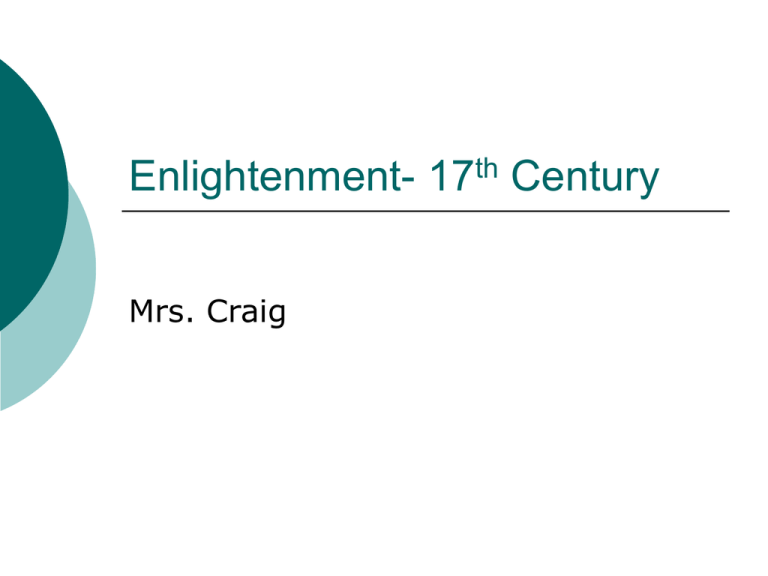
Enlightenment- 17th Century Mrs. Craig What is the Enlightenment? How is this different from Humanism? Humanists- looked BACKWARDS! The empirical world matters. Enlightenment looks FORWARD!!! Progress is possible using reason. Also called AGE OF REASON. There were Skeptics!!! Pierre Bayle- French Huguenot Wrote Historical and Critical Dictionary Concluded that nothing can be know beyond any doubt Humanity’s best hope is open-minded tolerance David Hume- human mind nothing but a “bundle of impressions” Questioned reason John Locke- Two Treatises of Government Disagreed with Descartes who held that all people are born with certain ideas Locke says “Tabula Rasa” – blank slate- all ideas come from experience Believes 2 foundations of knowledge (1) environment (not heredity) (2) reason (not faith) Montesquieu- Philosopher Wrote Spirit of Laws- compares monarchs, republics and despotism Credited with developing emerging study of social sciences Promoted liberty to prevent tyranny “it is necessary that by the arrangement of things– power checks power!!” Believed parlements(13 high courts) were the frontline defenders of liberty Voltaire (real name Francois Marie Arouett) 1717-imprisoned in Bastille 11 months for insulting French Regent Revered Newton Deism- concept of God as clockmaker Pessimistic- best one hopes for is good monarch because man is “rarely worthy to govern themselves” Voltaire (continued) Most famous work– Candide Written as response to German philospher Leipzig whose idea was that God created the “best of all possible worlds” Diderot Encyclopedia 1765 – puts all knowledge together in series of articles– reached reading public Censored by French government- Why? Pope puts on Index- excommunication for anyone who reads it!! 22 volumes in 20 years– 11 were art! Condorcet Progress of Human Mind written in hiding during Reign of Terror 9 stages of human progress to utopian society Nature has placed no bounds on perfecting human faculties. This progress of perfectibility is limited only by duration on the globe to which nature has placed us!” Condoret (continued) Saw a better world- higher standard of living, more leisure, more equality among humans and between genders, war given up as irratinal, disease conquered by medicine. (truly a man with vision!) Rousseau Wrote Emile-education must be the shield against tyranny Also wrote Social Contract “general will is sacred and absolute” reflecting the common interests of man Believed man equal and every man has a right to here in governmenthis definition of the social contract Rousseau (continued) Only lawful form of government rests on the will of the peoplecould justify the “appointed” king but man must make laws since they are the ones bound by them.
